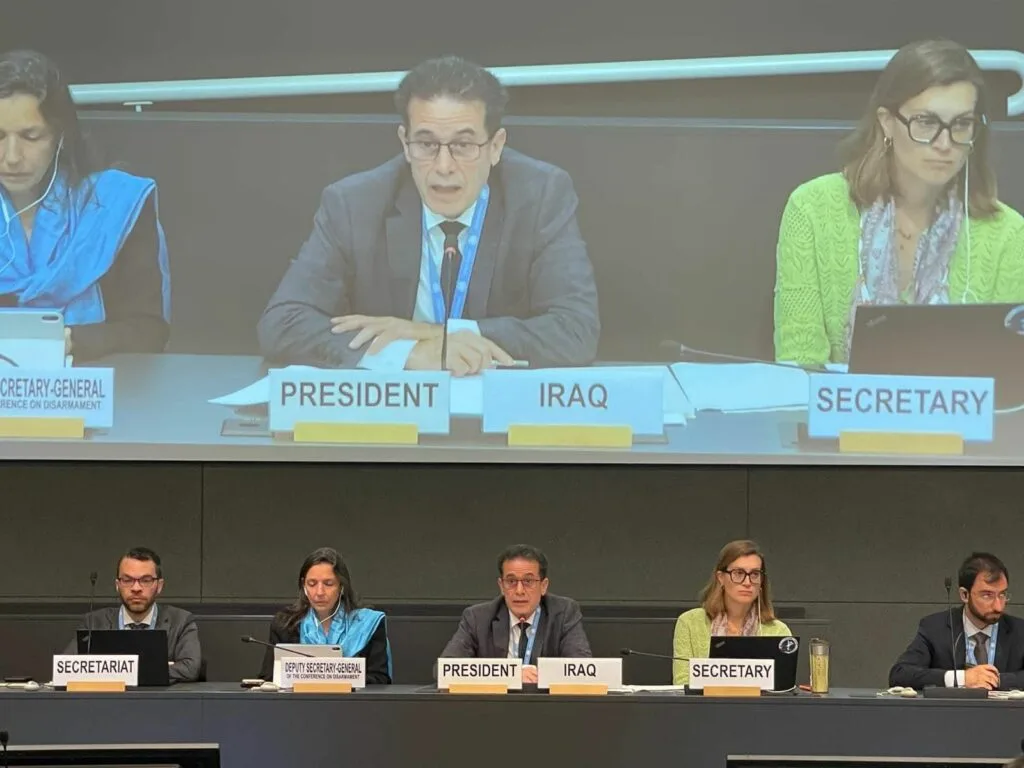Geneva, 27 May 2024 (TDI): Permanent Representative of the Republic of Iraq to the United Nations Office presides over the Conference on Disarmament starting from May 27 to June 21, 2024.
Ambassador Abdul Karim Hashim Mustafa is heading the official session being held at the UN Headquarters in Geneva.
During the meeting, Ambassador Abdul Karim Hashim Mustafa conveyed his satisfaction at taking on this significant responsibility.
Moreover, this move comes as part of Iraq’s participation in global initiatives to improve security and stability through disarmament.
Ambassador Karim emphasized the Republic of Iraq’s dedication to promoting discussions and debate to conclude disarmament.
In addition, he emphasized how critical it is to collaborate with all member states to provide tangible outcomes for the conference’s agenda.
Furthermore, the Ambassador emphasized that the Iraqi government strongly believes in adhering to all agreements and treaties related to non-proliferation and disarmament.
Only with constructive engagement and cooperation from all member nations can significant advancement be made.
“The Iraqi presidency aims to work hard to restore the effective and central position that the conference occupied within the international disarmament mechanism,” said the Permanent Representative of the Republic of Iraq.
Conference on Disarmament
Established in 1979, the Conference on Disarmament brings together 65 member nations. These nations intend to fortify global peace and security using disarmament talks and negotiations.
The Comprehensive Nuclear-Test-Ban Treaty (CTBT), the Biological Weapons Convention (BWC), the Chemical Weapons Treaty (CWC), and the Nuclear Non-Proliferation Treaty (NPT) are just a few of the significant agreements that the Conference has achieved.
Also Read: China-Arab States unite on Palestine Issue at 10th Ministerial meeting
Conclusively, these agreements have played a significant role in advancing multilateral arms control, nonproliferation, and disarmament efforts.
Iraq aims to address the disarmament of nuclear weapons, and the threat posed by emerging technologies to global security, and enhance the capacity of research and training.



